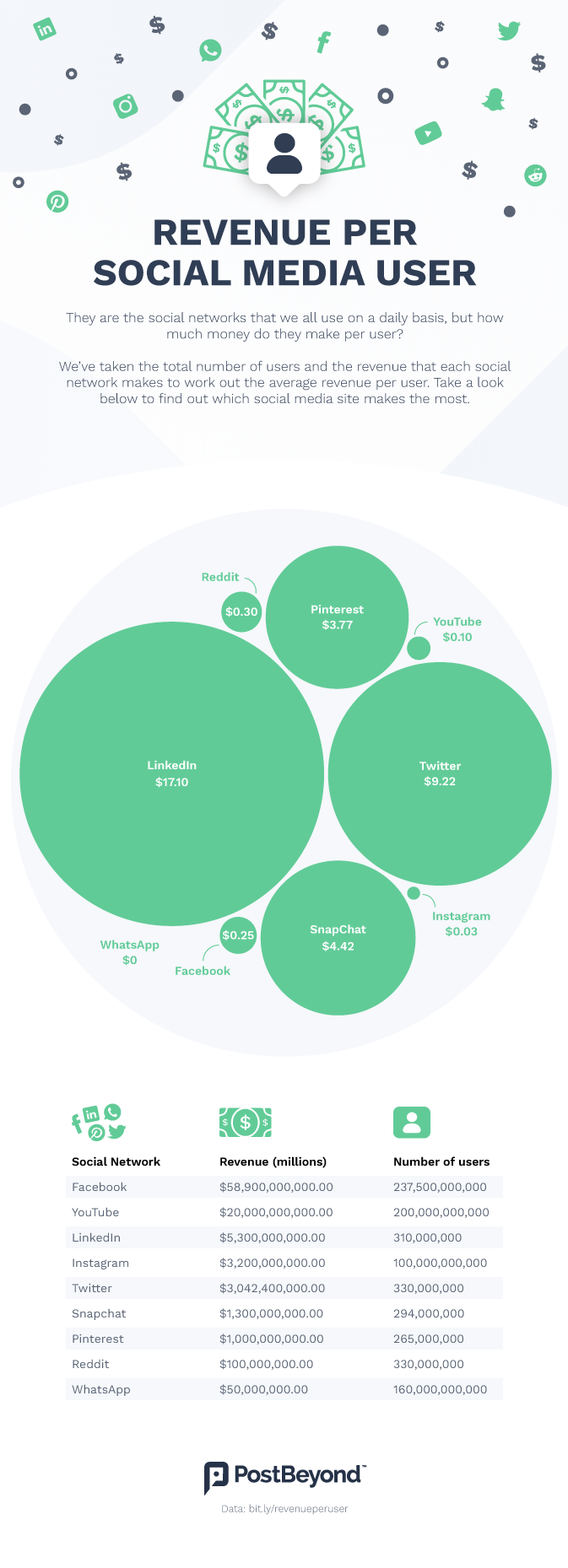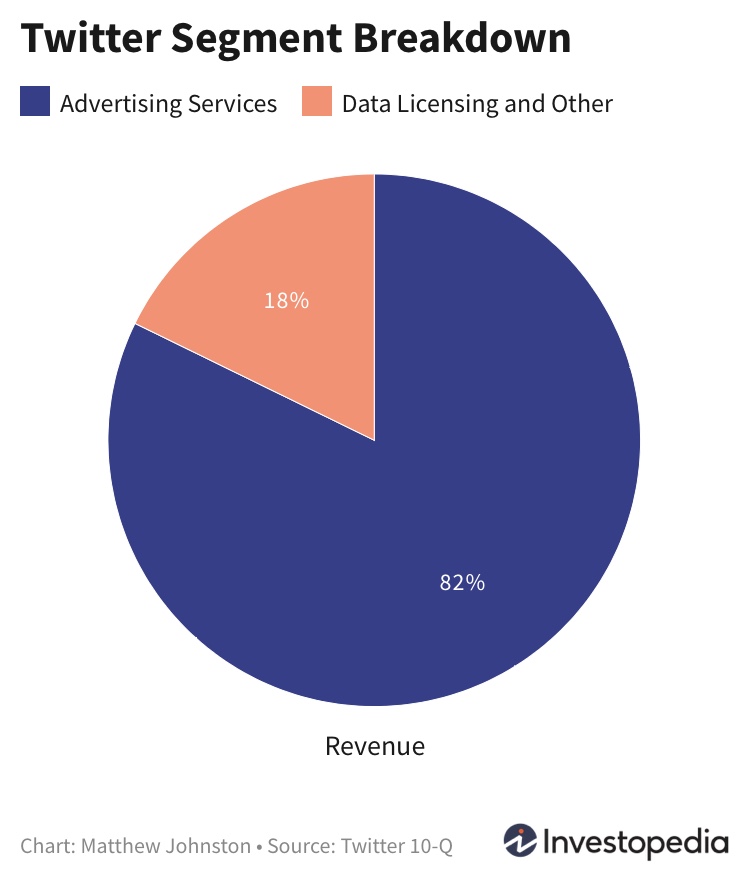What is data monetization and how does it use your personal data?
The not-so-hidden cost of staying connected online
By Lorence Olivo
September 30, 2020
Maybe you were looking up the price for a new flat-screen television. Or maybe you decided to reorganize your pantry and searched online for some food storage containers. Within a few hours, your social media feeds started showing advertisements for televisions or BPA free containers. We’ve all been through this. It’s not that hard to figure out what happened. Somewhere in cyberspace, little packets of information are constantly being added to a secret and very personal profile about you and your habits.
One of the major controversies that social media platforms have been dealing with over the past few years has been in regards to user privacy. It’s no secret that sites like Twitter and Facebook gather data on their users. But when close to eight-in-ten Americans use social media for things like networking, sharing content, and even getting the news, the idea of living an “unplugged” life sounds more and more like setting oneself up to fail. There’s just too much that we rely on social media for, especially during our current social-distancing reality. The tradeoff for all of this, though, is the profit that is made from our personal data.
Even if you decide that this kind of bitter pill is worth taking, it doesn’t mean that you have to accept it blindly. In this article, we’ll slip past that friendly user interface and ignore the company line that social media sites do not “sell” user data and explore what “personal” data means for online platforms like Twitter and Facebook and highlight how these said platforms commonly monetize personal data for their
own ends.
Even if you decide that this kind of bitter pill is worth taking, it doesn’t mean that you have to accept it blindly.
What is data monetization and what data is being sold?
At its most basic level, data monetization involves finding or collecting data that can be sold for a profit. It isn’t something overtly insidious and there are many analytics companies whose services include compiling hard data on information such as weather cycles or population censuses. What makes this form of monetization so unsettling for social media, however, is in regards to “what” data is being sold.
On the internet, the most precious commodity for platforms to acquire is the personal data of their users. Facebook, Instagram, Twitter – the list goes on with even a more “professional” site like LinkedIn a culprit of selling off personal data. But what counts as “personal” data? It’s a rather nebulous term, acting as an umbrella for a lot of different bits of information that could be found on a specific person. To make it a bit clearer, it’s best to view “personal” data as falling into three categories that data brokers, businesses, or hackers might be searching for:
- Mostly innocuous, but strangely specific data categories – Such as how you swipe or tap with your phone.
- Revealing information, but also the most typically monetized – Social media posts, location data, search-engine queries, etc.
- Highly sensitive data – Health records, social security numbers, and banking details.
While it is not unheard of for social media platforms to gather data on a user’s medical condition, such as in one cancer patient’s court case against Facebook, it is from these first two categories that most data is gathered. Each platform has their own specific bits of data that they want to get from users, but there is a general pattern that nearly all sites share:
- Information in the public profile: name, location, etc.
- Contact information: email addresses and sometimes phone numbers.
- Uploaded content: such as public posts, private DM messages, photos, and videos.
- Usage data based on what links you interact with (links to the platform and from the platform).
- Data on which devices are linked to which accounts (phone, tablet, computer)
- Facial recognition data.
- Metadata on where and when people log in or use a platform
Ways your data is being put to work.
We live busy lives and social media sites prey on that fact. There are very few of us who have the time, interest, or energy to go through line-by-line of privacy and data usage policies. It’s far easier to just scroll to the bottom, click accept, and get stimulated by the sudden immediacy of content that we now have access to. And thanks to the mostly unobtrusive ways that your data is gathered and used, a casual user could get away with not noticing what was happening. In this section, let’s dive into just what exactly these platforms are doing with our data.
Social media platforms want to make money. That’s a simple fact. With millions of active users, it comes as no surprise that social media platforms would find a way to increase their revenue by monetizing their own users. The most common form of data monetization comes through the selling of extremely tailored and personalized advertising based on mined information from people’s private data. Generally, social media sites use data gathered on their users to categorize them by age, ethnicity, education level, income, marital status, number of children, political leaning, hobbies, and other interests, all to create the most targeted – thusly effective – advertisements. And these advertisements do seem to be effective.
In an infographic by PostBeyond, we see a snapshot of just how much revenue social media platforms
can make per user.

Source
As PostBeyond lays it out, the top three revenue-making social media platforms come down to:
1. LinkedIn – $17.10 per person
2. Twitter – $9.22 per person
3. Snapchat – $4.42 per person.
This reliance on advertisement sales can be further supported by a breakdown of Twitter’s second-quarter earnings from this year, which proves that advertising is a major profit motive behind gathering
and selling private data to ad agencies.

Despite the massive influx of revenue social media companies can make off of us, it would be remiss to not point out that they do not sell all of the private data they collect. The data gathered is often used by social platform algorithms to deliver more interesting or relevant content to the user. One big, but also surprising, example of this comes in the form of Google, which does not “sell” any personal data.
As primarily a search engine, Google goes about using personal data, not for the benefit of ad agencies or third-party buyers, but instead to better optimize what content is seen or discovered by its users. The caveat to all of this being that it is arguably one of the most intrusive companies into user privacy. Any YouTube search history or watch history is recorded. Any use of Google Maps is logged away, with the app even able to record everywhere you go and how long you stay there even when not in use. All web searches and sites visited are tagged. Google even keeps recordings of your voice when you use Google Assistant. It’s all very Big Brother, but Google claims that these data collection policies improve their services—helping you find similar searches or items to what you’ve previously liked—though users might disagree on how helpful this service is.
YouTube search history or watch history is recorded. Any use of Google Maps is logged away, with the app even able to record everywhere you go and how long you stay there even when not in use. All web searches and sites visited are tagged. Google even keeps recordings of your voice when you use Google Assistant. It’s all very Big Brother, but Google claims that these data collection policies improve their services—helping you find similar searches or items to what you’ve previously liked—though users might disagree on how helpful this service is.
What’s the danger for you?
All in all, you might have a dirty feeling about what your favorite social platforms are doing with your personal data. At the same time, you might be holding out hope that this information is at least anonymous and that your identity is kept secure. But this is the internet. And if being online has taught us anything, it’s that most businesses are unprepared for major cybersecurity attacks.
It doesn’t matter if it’s a small business or a large corporation. There have been numerous incidents over the years of companies being hacked and thousands of personal accounts and data being compromised. Just earlier this year, Twitter was hacked with the attackers targeting 130 user accounts, gaining access to their direct messages, and making tweets to their followers in a scam for money. They were able to target the accounts of numerous high-profile individuals, including those of Bill Gates, Elon Musk, and former Vice President Joe Biden.

This wouldn’t be the first time that Twitter was unable to keep user accounts secure as the company had also reported in 2018 that a bug in their coding had compromised the passwords of more than 330 million users. Twitter was quick to assert that there was no evidence of misuse for the compromised passwords, but it goes to show that it doesn’t require an expert hacker to compromise a system. Simple human error has the potential to do just as much damage.
Tips and Reminders
The world has become so interconnected and reliant on these platforms and services that it’s no longer possible for most people to “unplug” themselves. Luckily, some steps can be taken to minimize the amount of information these social platforms farm. It might take some time and effort to make things secure. But when it comes to your personal information, can you afford not to?
- Most social platforms are fairly transparent in their privacy settings, with Google even offering users the opportunity to look at and modify their ad profile.
- Most platforms offer users the ability to opt-out or limit what data is recorded about them (some much more than others).
- Limit what personal information you put on your public profile. They can’t take what they don’t know.
- Use a virtual private network “VPN” to protect your online profile against location-tracking apps and hackers trying to trick people into logging onto fake networks.
- Read the fine print on those online services to make sure you know what you’re getting into.

Very compelling article! What about creating a platform that does the opposite? Giving full control of monetization to users?
I am studying this possibility passionately.
Thanks
That is certainly an interesting idea. I, for one, think that such a site would be seen as very appealing. People could see such a platform as giving them a high degree of transparency and self-autonomy over their online presence.
From what I have researched, there hasn’t been much exploration into such a monetization model. I can surmise that this is primarily because most big platforms want to have direct control over what/where monetize revenue is coming from, along with the fact that there hasn’t truly been a need for them to look into such a practice due to how popular these platforms already are.
It would certainly be an interesting story to explore further.